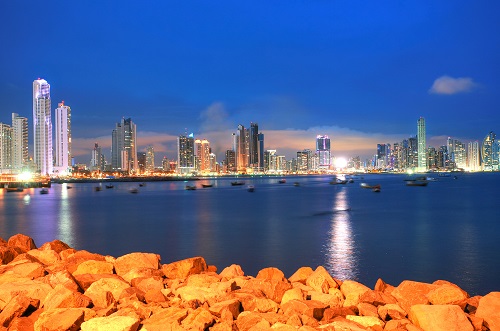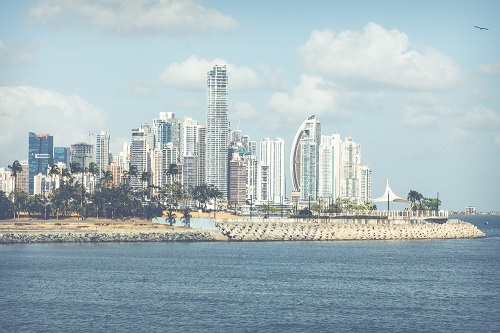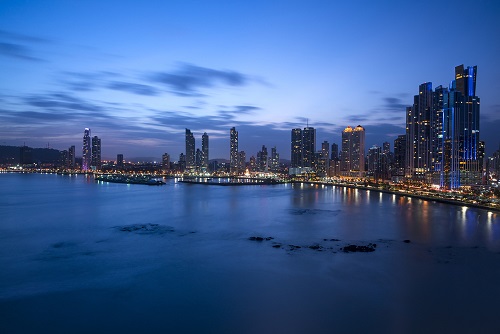If you are intending to give birth in Panama, you will need to make a decision early on regarding whether to use the public or the private sector. In general, the public system is of a good standard in the cities, but it may be less so in more rural areas. The private sector is of an extremely high quality. You should have few problems finding a suitable hospital or clinic in which to have your baby.
How to decide on a birth plan
A birth plan is a list of what you would like to have happen during labour and afterwards. It is written so that your doctor knows what your wishes and expectations are.
- Where do you want to give birth?
- Who do you want to have with you (e.g. your partner)?
- What kind of birth do you want (e.g. vaginal birth or a Caesarian)?
- Do you need any birthing aids?
- Do you want pain relief, and if so, what kind?
- What kind of birthing environment would you prefer?
Consult your obstetrician and your midwife regarding epidurals, which are available in Panamanian hospitals, along with other forms of pain relief.
Giving birth at home is allowed in Panama but is not common. If you want this kind of birth, consult your midwife.

Maternity care in Panama
You should have no difficulty in accessing a high standard of healthcare in Panama’s cities, but note that, as mentioned above, you may experience a lower standard of provision in rural and more remote areas. Waiting times can be lengthy, for instance, and there may be a shortage of appropriately trained medical personnel.
Experts report a large healthcare gap between the wealthy parts of Panama and the poorer regions. The maternal mortality rate for Panama is 70 deaths per 100,000 live births, for example, and this places the country in the top ten in Latin America and the Caribbean for good maternity outcomes. However, in some indigenous areas, the death rate is considerably higher, at 658 deaths. This is comparable with Haiti, which has the highest maternal mortality rate in the Western Hemisphere. The discrepancy is due to poverty, poor diet, very limited medical provision, and overall marginalisation of these communities. This is very unlikely to have an impact on you as an expat, but it is worth considering if you are resident in one of the more remote parts of the country.
As an expat mother-to-be, you will want to consider carefully whether to use the public sector or to go private. In either case, it is important to visit the hospital that you have in mind. Do not be afraid to ask questions regarding maternity provision and outcomes.
If you believe that you may be pregnant, your first port of call will be your GP. S/he will arrange the schedule of your prenatal care, which will include:
- Checkups
- Full blood tests
- Cervical smear
- Ultrasound scan
- Rh factor test
You are likely to have checkups every month, but you might have them every two weeks (or even weekly, later on in your pregnancy). In your 28th week, you should be scheduled for a glucose tolerance test (GTT), with more blood tests and a RhoGAM shot if necessary.
Ultrasounds will be conducted at week 12, week 20, and week 32.
You will need to choose a pediatrician, who will attend to you during the delivery. You can also consult a midwife (partera). Note that medical staff are often, but not invariably, bilingual.
Panama City has prenatal classes, but you may not find these in remote areas, which often keep to traditional methods of pregnancy and birth, although a midwife is usually involved.
If you are giving birth in the public sector, you will need to choose your hospital. If you have private insurance, it is possible that your provider will select the hospital for you, and they will need a deposit. Usually, you will be offered a variety of delivery packages.

Some expat mums have reported being pressured into C-sections, even when these were unnecessary. This is because there is a cost factor, as C-sections cost around four or five times the price of a normal birth – a normal birth is usually around US$1K to US$2K, whereas a C-section can be from US$5K to US$6K.
Some expats also say that they have been pressured to use hospital formula milk rather than breastfeeding, as some hospitals are tied into contracts with formula companies. As an expectant mother, you have quite enough going on without having to deal with this sort of thing as well, so if you feel that you need a patient advocate, make sure you set this up in advance of the birth. If you are uncertain about anything, get a second opinion from a doctor that you trust.
You are likely to find English-speaking personnel in the private sector, many of whom will have trained or worked in the States.
You are likely to be in hospital for a couple of days, but obviously this can be longer (three to five days) if you have had a Caesarean.
You will be scheduled for monthly checkups after the birth, which may become three-monthly checks after the first year. Some Panamanians hire a nurse after the birth. Panama City also has provision for postnatal classes.
In the case of maternity care, 100% of the insured person’s average earnings in the last nine months is paid for up to six weeks before and eight weeks after the expected date of childbirth.
Births must be registered at the Civil Registry in Panama. The hospital will do this automatically, but they will need the parents’ IDs (passports, residency cards), as well as two witnesses who are not related to the parents. You will be given the birth certificate at the hospital. In the case of a home birth, you will need to register the birth independently. This can be done either by yourselves, a grandparent, or a lawyer.
Will my baby be a Panamanian citizen?
The short answer is ‘yes.’ Anyone born on Panamanian soil is a citizen of Panama, and parents can apply for naturalisation for their child after three years of residency.

